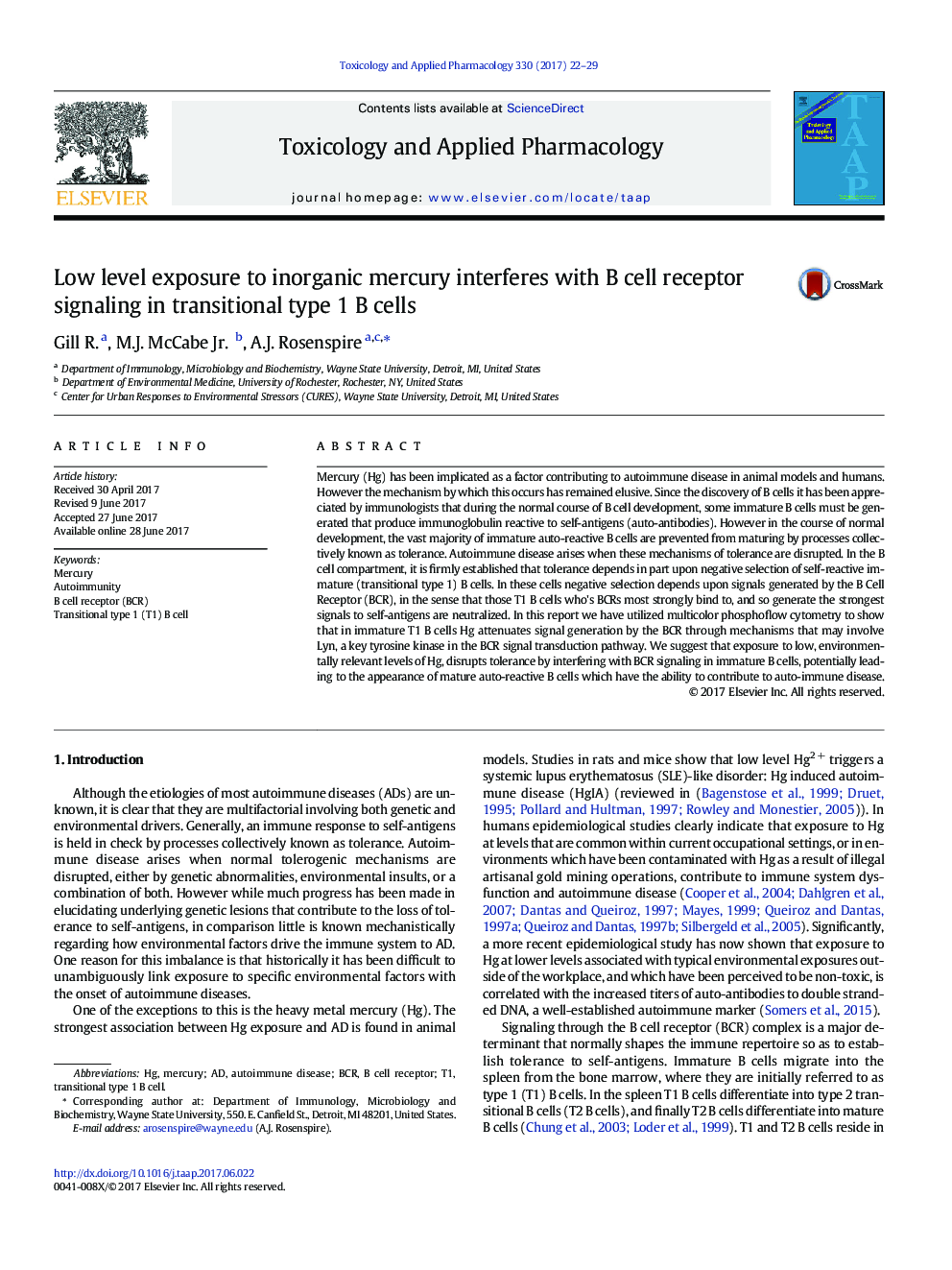| کد مقاله | کد نشریه | سال انتشار | مقاله انگلیسی | نسخه تمام متن |
|---|---|---|---|---|
| 5558460 | 1561132 | 2017 | 8 صفحه PDF | دانلود رایگان |

- Hg2Â + interferes with BCR-mediated activation of ERK in immature T1 B cells.
- Hg2Â + acts upstream of ERK.
- BCR mediated activation of Syk and the CD79a ITAM are attenuated in immature T1 B cells by Hg2Â +.
- The mechanism whereby which Hg2Â + affects Syk and CD7a activation involves the tyrosine phosphokinase Lyn.
Mercury (Hg) has been implicated as a factor contributing to autoimmune disease in animal models and humans. However the mechanism by which this occurs has remained elusive. Since the discovery of B cells it has been appreciated by immunologists that during the normal course of B cell development, some immature B cells must be generated that produce immunoglobulin reactive to self-antigens (auto-antibodies). However in the course of normal development, the vast majority of immature auto-reactive B cells are prevented from maturing by processes collectively known as tolerance. Autoimmune disease arises when these mechanisms of tolerance are disrupted. In the B cell compartment, it is firmly established that tolerance depends in part upon negative selection of self-reactive immature (transitional type 1) B cells. In these cells negative selection depends upon signals generated by the B Cell Receptor (BCR), in the sense that those T1 B cells who's BCRs most strongly bind to, and so generate the strongest signals to self-antigens are neutralized. In this report we have utilized multicolor phosphoflow cytometry to show that in immature T1 B cells Hg attenuates signal generation by the BCR through mechanisms that may involve Lyn, a key tyrosine kinase in the BCR signal transduction pathway. We suggest that exposure to low, environmentally relevant levels of Hg, disrupts tolerance by interfering with BCR signaling in immature B cells, potentially leading to the appearance of mature auto-reactive B cells which have the ability to contribute to auto-immune disease.
Journal: Toxicology and Applied Pharmacology - Volume 330, 1 September 2017, Pages 22-29